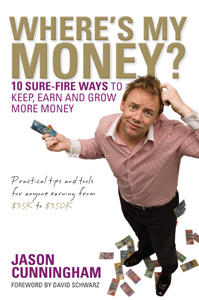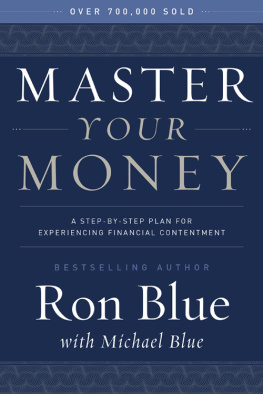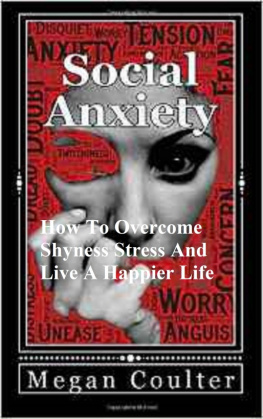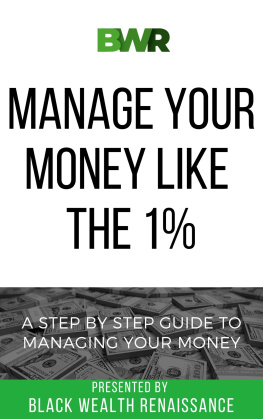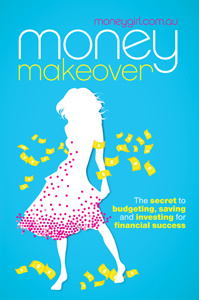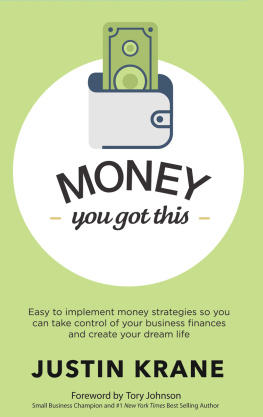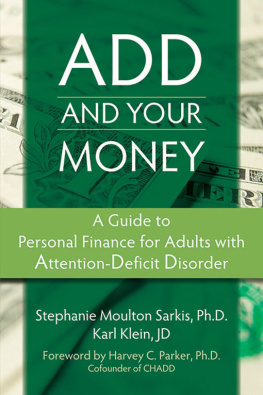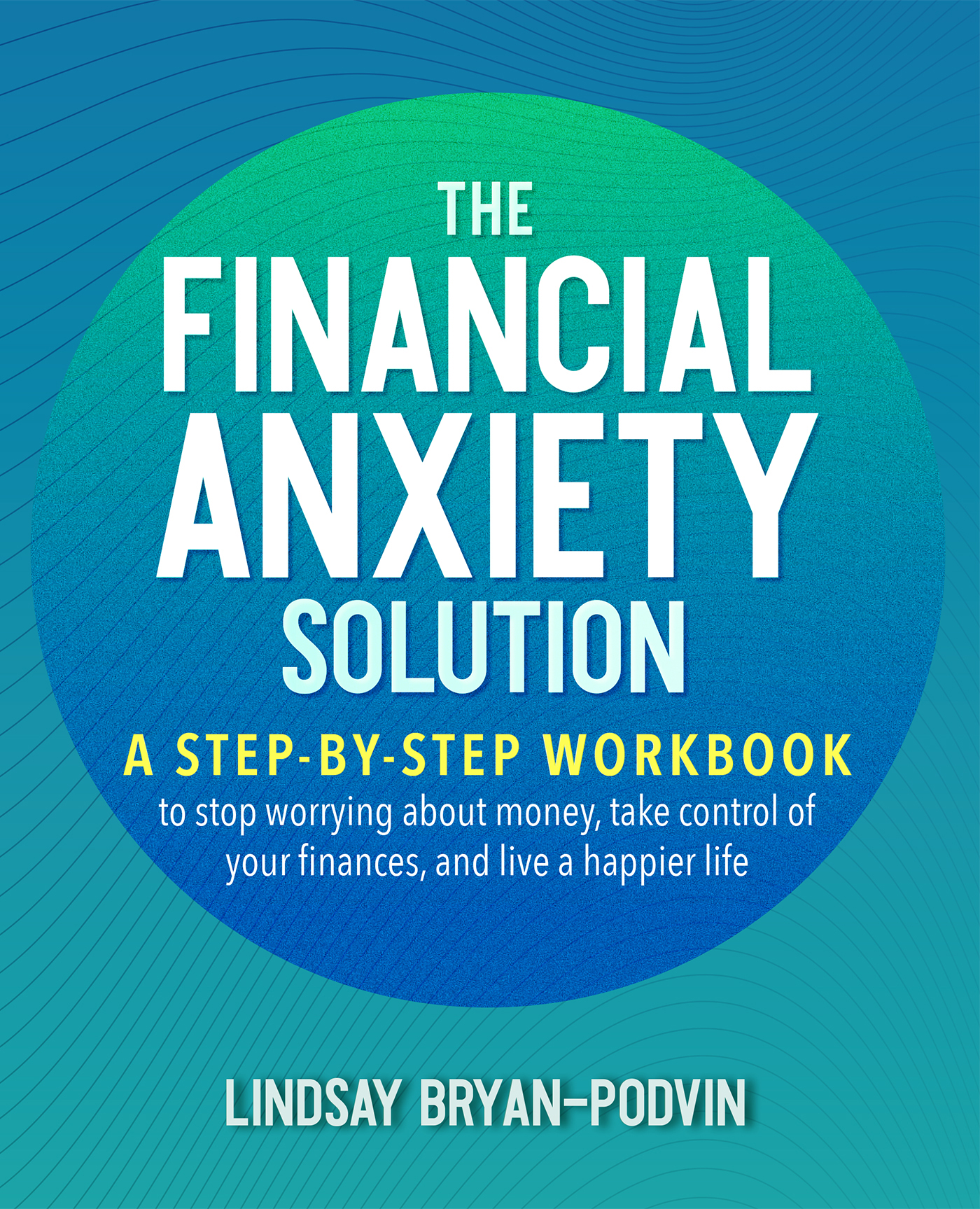Contents
Guide
Text copyright 2020 Lindsay Bryan-Podvin. Design and concept copyright 2020 Ulysses Press and its licensors. All rights reserved. Any unauthorized duplication in whole or in part or dissemination of this edition by any means (including but not limited to photocopying, electronic devices, digital versions, and the internet) will be prosecuted to the fullest extent of the law.
Published in the United States by:
ULYSSES PRESS
P.O. Box 3440
Berkeley, CA 94703
www.ulyssespress.com
ISBN: 978-1-64604-007-0
ISBN: 978-1-64604-053-7 (ebook)
Library of Congress Control Number: 2019951399
Acquisitions editor: Bridget Thoreson
Managing editor: Claire Chun
Editor: Renee Rutledge
Proofreader: Miriam Jones
Cover design: David Hastings
Interior design: Jake Flaherty
Interior art: all art shutterstock.com; Satika
INTRODUCTION
Financial anxiety is a problem. It consists of negative or avoidant thoughts and feelings about money. This anxiety often leads to behaviors like avoiding the bills, procrastinating on signing up for an employers retirement plan, or not planning for the financial future. A person with financial anxiety can feel guilty, embarrassed, or fearful of their money. Their heart races when the bill comes at dinner, their stomach drops when they have to talk about their salary at their annual performance review, and they feel demoralized when they dont understand whats going on in their retirement account. They think they arent smart enough to manage their money or dont have enough of it to matter, or they hold a Pollyanna belief that their money will sort itself out.
These types of emotional and behavioral responses contribute to the fact that 60% of Americans cant scrape up $1,000 in the case of an emergency. Over 51% of Americans agree to feeling anxious; money is ranked second in terms of what is stressing Americans out, with 62% of them saying it is a significant source of stress.
The solution? Learn how to cope with financial anxiety so you can become resilient and create a smart financial plan.
Im Lindsay. Im a mental health therapist and have spent years working with clients who have financial stressors. Before becoming a financial therapist, the only thing I was trained to do was to help clients find a temporary solution to a permanent problem. This solution (usually helping someone call an 800 number to see if they qualified for a bill payment plan) didnt sit well with me. According to my code of ethics as a social worker, I should move beyond merely serving and problem-solving. I should work alongside a client to explore their ability to address their own needs. I should help them understand whats going on so they can have the right information moving forward to manage their lives autonomously. When it comes to financial stressors, I was determined to find a better way than the status quo of bandaging the problem.
As a personal finance nerd in my own time, it became my mission to educate people on financial issues in an ungimmicky, approachable, and emotionally minded way. My approach has resonated. My practice has been full with a waitlist, which is why its the optimal time for me to share the exact exercises I do with my private financial therapy clients through this book.
Anxiety is treatable. Financial literacy is possible. No matter what our style of learning, most of us do best when we can see a concept put into action. Thats why The Financial Anxiety Solution is full of examples and scenarios in addition to helpful, usable worksheets. I will walk you step by step through various exercises and strategies to understand your anxiety. I will teach you how to apply coping skills to your anxiety symptoms so you can be in a better place to tackle your financial worries. While this workbook does include financial terms, I will explain each one clearly and without patronizing.
Anyone can google their way to a budget spreadsheet; my goal is to help you figure out why anxiety is getting you caught in financial ruminations, procrastination, or avoidance. Techniques I provide include positive coping skills, quizzes, journaling prompts, calming the mind and body, increasing knowledge about financial terms, and tuning into personal values. I include real-life examples from myself, my friends, and clients (note: any identifying factors have been changed for privacy). When you are ready to see how learning these skills might apply to your finances, Ive included shortened versions of some of the most popular money-management techniques.
So what will you get, exactly, from this workbook? The power to be in control of your financial anxiety so you can confidently manage your money. Youll stop dodging your monthly expenses. Youll start calmly and deeply breathing when you plan your financial future. Youll know that your net worth doesnt equal your self-worth.
While I believe most people can benefit from this workbook, it is not for you if you are seeking personalized financial or investment advice, are extremely financially strained, or are seeking a get-rich-quick solution to your financial anxiety. Its not for you if you arent interested in learning the whys behind your financial behaviors.
This workbook is for you if who are ready and willing to get unstuck from your current anxious relationship with your finances. It is for you if you know you are capable of understanding your financial anxiety and are eager to learn steps to alleviate it. This workbook is especially useful if you are in the workforce or about to enter the workforce. While retirees can undoubtedly benefit from the emotional exercises, they may find some of the worksheets no longer apply to their circumstances. This workbook is also a better fit for those who are not in dire financial situations. For example, you may be struggling to make ends meet, but you arent on the brink of homelessness or bankruptcy.
As the Chinese proverb goes, The best time to plant a tree was twenty years ago. The second-best time is now. In other words, even if you feel like you are too far into your financial relationship to make a change, there is still hope and opportunity for growth.
I promise that if you take this workbook seriously and dedicate time and energy to it, youll finish feeling more abundant and less anxious in your relationship with money. Youll log into your bank accounts with a sense of confidence. Youll smile as you think ahead to your realistic five- and ten-year financial goals. Youll pay your bills on time with ease. Youll know how to set yourself up for financial success.
One more note before you get started. You can skim this workbook. You can read the exercises and skip over them. If you skim and skip, I can guarantee you that this workbook wont be useful. For you to truly make a change, you are going to have to commit to reading, processing, and writing. This workbook is designed to build on lessons and techniques from the previous chapters. I encourage you to go through this workbook, in order, from start to finish for the best results.
Remind yourself what is on the other side of financial anxiety.
Lets dive in.
CHAPTER 1 GETTING STARTED
Money isnt a dirty word. You can create a healthy, unanxious relationship with money.
MY MONEY STORY
Our money stories start to take shape when we are quite young. Like many of our beliefs, they form not only from what we learn firsthand but also from what we absorb from the stories our parents and grandparents tell us, the communities in which we live, and the lessons we learn from our education and cultural systems.


